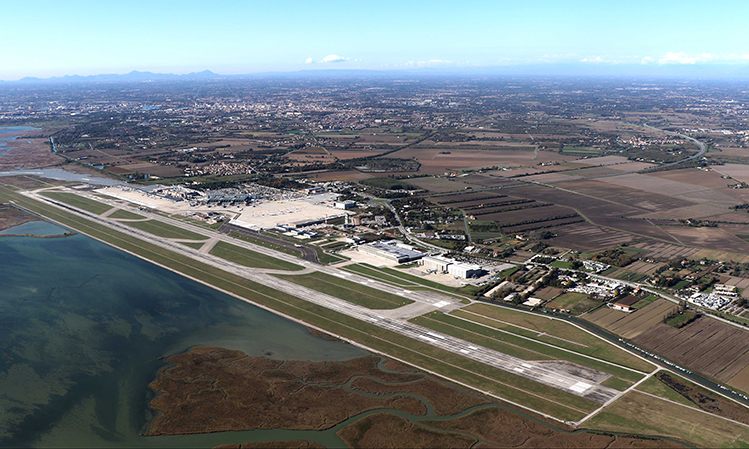Venice Marco Polo is one of the world’s most evocative and spectacular airports. SAVE Group, the managing company, is mindful of the airport’s unique location in a delicate lagoon environment, and implements comprehensive actions aimed at sustainability, environmental protection, and improving energy efficiency. Indeed, Venice Marco Polo Airport is accredited at Level 3+ Neutrality of ACI’s Airport Carbon Accreditation.

In terms of energy efficiency, approximately 80% of the electricity required for the operation of Venice Marco Polo Airport is self-produced, with the remaining portion purchased from renewable sources.
SAVE Group has allocated €46.5 million in the current Venice Airport Master Plan for environmental sustainability initiatives. “In particular, there are many activities developed with a view to saving energy and reducing CO2 production,” explains Monica Scarpa, CEO Venice Marco Polo Airport, SAVE Group.
“In the last three years, replacement of the terminal lights with LED technology has led to a reduction of about 250 tonnes of CO2; added to this, there is a further reduction of 50 tonnes due to the introduction of
low consumption engines in the baggage handling plant. We are already working on the reutilisation of water coming from the lagoon in the 2035 Masterplan in order to reach the zero emission level, thanks to the adoption of an extended range of energetic solutions.”
A gradual process of replacing airport vehicles with hybrid or electric models is also underway. Currently, there are 25 hybrid cars in use, while five are electric vehicles.
In terms of energy efficiency, approximately 80% of the electricity required for the operation of the airport is self-produced, with the remaining portion purchased from renewable sources. “In 2016, we inaugurated the trigeneration plant, which allows the self-production of thermal, refrigerating and electrical energy, with a consequent reduction in the cost of energy requirements,” says Scarpa.
Meanwhile, Venice Marco Polo is to become the second airport in Europe, after Oslo, to equip itself with a pneumatic waste disposal plant. This means waste is collected directly inside the terminal, at established points, and from there transported through a network of underground pipes to a centralised ecological island, which collects all the waste from the various buildings on-site. Construction of the plant will begin in September 2019 and it will be operational by 2020.
In addition, the airport plans to redevelop its green areas, with planting of new trees and plants characterised by a high CO2 absorption capacity. This follows the redevelopment of salt marshes along the Tessera water canal connecting the airport with the lagoon, which was undertaken as part of the Master Plan 2012-2021.







